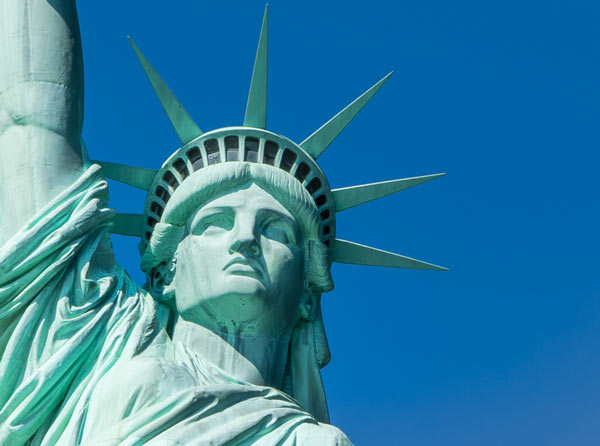Sometime in middle part of the nineteenth century a skinny young man named McMahan crammed himself into a famine ship in Northern Ireland. In the course of the following days his body was ravaged further by the hunger he fled. His life was threatened by typhus and dysentery. Many fellow travelers died at his side. The odds were stacked against him. But he survived the multiweek voyage across the Atlantic Ocean. Treated like an animal, he was dumped onto American soil. Unwelcomed by earlier immigrants who resented and discriminated against him, he migrated south to Appalachia where he scratched a meager existence from rocky soil. Several generations later, in the early part of the 20th Century, his descendants learned there was work in the textile plants in piedmont North Carolina. There they found employment with the benefits of modest lodging and food, precious food.
America is a nation of immigrants. We have traveled but a short distance from the time our relatives arrived on these shores. Most of us are ignorant of or ambivalent to that history, but it is not dissimilar to the present.
Immigrants still flee untenable circumstances for the hope of securing better lives in America. Many, already living in this country, resent and discriminate those who dare to come now, legally or illegally.
Today a young woman with small children walks hundreds of miles north through perilous circumstances. She bravely faces physical danger, hunger and thirst, as she vigilantly protects her fragile family. The odds are stacked against her. Her aspiration is to escape corrupt and incompetent governments that either refuse or simply cannot provide civil order in the face of powerful and callous drug lords and gangs. She fears her children will be killed, or worse, will be conscripted by the gangs into a life of violence and depravity. She wants a better life for herself and her family.
As I travel around the country, in larger cities, especially, I am in regular contact with people who have come to America from other countries. They are taxi drivers, cooks, baggage handlers and hotel attendants. They are nurses and doctors. They are attorneys and accountants. The fabric of America is a diverse tapestry with many threads of varied colors and histories. We are stronger, not weaker, because we are a nation of immigrants.
I am in a clean, small SUV in Milwaukee. Artur is my Uber driver. His family immigrated from Crimea when he was 15.
“Twenty-five years ago,” he says. “I am forty now.”
He shakes his head and laughs.
“My wife says I eat too much. She worries about my heart.” He touches his chest. I tell him I have the same kind of wife.
A photo of a beautiful young girl is taped to the dash of his car.
“I just work 10 or so hours each day, usually six days a week,” he says, “so my wife can do yoga and eat carrots.”
He laughs, then is more serious. “And care for our daughter.” He nods toward the picture. I decline his offer of a small bottle of water and peppermint candy.
We part friends. I give him a five-star rating and add a five-dollar tip to the six-dollar fare.
I love this country.
This was originally published in the Gaston Gazette, where Michael K. McMahan is a columnist.

